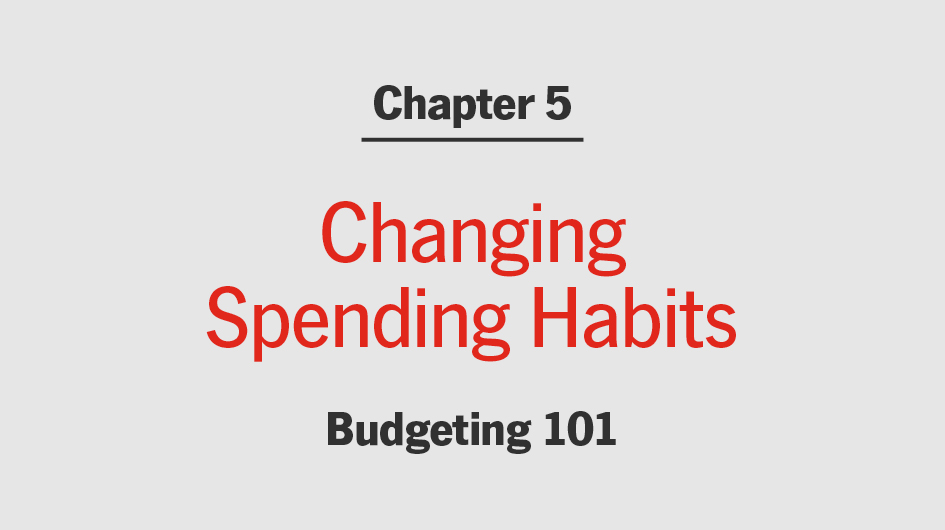Transcript
(Chapter 3 Begins)
00:05:48 TONYA: All right. So now we have that goal. We need a budget, right, because a budget is that plan. So budgeting for freelancers, how different is it?
00:05:56 JOHN: A budget’s a budget. But as a freelancer, you’re probably going to want to have a budget for personal and a budget for business. So having those things separate makes it a lot easier on a day-to-day basis, and especially when you go to talk to the tax man, right? Making it easier when it comes to that. But the building blocks of the budget starts essentially with fixed expenses. These are expenses that you know you’re going to have every single month. They typically don’t have a lot of short-term flexibility. And for these, think, your rent or your mortgage, or your bills; cell phone bills. And keep in mind, maybe you have some expenses that are going to be for the business. And like I said, that might be a reason why you want to have those separate.
00:06:35 TONYA: Yeah, and then you have your variable expenses. So your fixed expenses, you can count on those being the same every month. Your variable expenses, you can count on having those bills each month, but sometimes they fluctuate, so that might be your electricity or it could be your gas if you live somewhere where they have gas, or it could range – even if you have someone who works contract with you, so looking at a business, if you have someone who works contract with you and their hours fluctuate. So maybe this month they helped you for five hours, but last month they helped you for twelve hours. That’s going to fluctuate as well. It’s still an expense, but it’s not the same each and every month.
00:07:07 KRYSTAL: That’s a great point. One of the biggest things I think that you had mentioned, John, is keeping the personal and the freelancer budget separate. Because a lot of times the freelancer, because they are flying solo, they think all the bills are combined. But you have to, this goes back to setting those goals, because if you’re setting goals for your personal life and your freelancer life, they look totally different.
00:07:26 TONYA: Yeah.
00:07:28 KRYSTAL: So the budget should look totally different. The fixed expenses should look different. The variable will look different as well. You know, especially with marketing and things of that nature, building your brand. So you have to be aware of those types of things and the expenses that you will actually face.
00:07:42 TONYA: Yeah, definitely. And then we have those non-monthly. So slightly different from the variable expenses, which you can count on to happen every month, you have those non-monthly expenses. So the non-monthly expenses, they might happen six months out of the year, three months out of the year, two months out of the year. That might be website redesign project, or that might be a personal expense, such as going away for a holiday vacation with your family, or participating in a wedding or attending a wedding. You want to make sure that you’re budgeting for those things.
00:08:07 JOHN: Yeah, a simple way to think about that is it’s a non-monthly expense. You know you’re going to pay for it whether it’s an annual webhosting fee or whether it’s a wedding you’ve got to get to; how much is that expense? How far away is it? And then divide the expense by how far away it is and that’ll give you a good idea of how much you should be setting aside each month for that particular expense.
00:08:26 TONYA: You know, one that gets me every year is domain registration. I forget about my domain registration yearly, but now I’ve had to write it down and say Tonya, you know what? Every year…
00:08:36 JOHN: You know it’s going to happen.
00:08:36 TONYA: You’re going to have to pay this, because we forget about those things because we’re not paying them monthly. But it doesn’t mean they don’t need to be paid.
00:08:45 KRYSTAL: It’s those little things, you know. And as we talked about taking a closer look at our budgets, when you’re a freelancer, your income fluctuates. So if you have these fixed, these variables, and then you have these non-monthly bills, how do you prepare for that? So having that budget set aside, one of the things that I do as running a business, I make sure that I take a couple of months, I average that out. What does that look like with my income coming in? What are those types of different expenses that I have? And I try to stick to those different things so that I know this hard number. So as a freelancer, you need to know that hard number so that you don’t go over or below it. Just because you may have that wonderful month.
00:09:24 TONYA: And I love that about being, about creating a budget, right? Because when you create a budget and you understand what your expenses are, you have that baseline number, no matter what happens, I need to bring in this income each month. And speaking of income, it’s important to understand, as a freelancer, your income is slightly different. It may fluctuate, but your income’s not really your income, because now you have business expenses that you need to operate.
00:09:47 JOHN: Exactly. Yeah, I mean if the money coming in and the expenses that you have, business and personal, you’re going to take that away from the income, and then hopefully we have a positive number left over at the end of the month, right? And that’s going to be your disposable income. Or we also call that money for our goals. So whether that’s a personal goal, whether that’s putting money back into the business, ramping up marketing, buying more inventory; whatever that looks like, we want to end up having more money come in than the expenses that are going out.
00:10:14 TONYA: Yeah, because then you’re operating in the negative.
00:10:16 JOHN: Don’t want to do that.
00:10:17 TONYA: And that is stressful. That definitely is stressful. And I know that sometimes people say, “You know, as a freelancer, I don’t have a set income each month. It fluctuates. Some months are amazing, and some months I’m wondering why do I even do this?” So when it comes to setting some of those goals, like your emergency fund, make sure that you’re saving or contributing to your retirement, you can do a percentage-based allocation instead of that flat dollar amount that you might have if you had a consistent income.
00:10:44 KRYSTAL: And another thing that, like you talked about the emergency fund. There can also be different types of funds, like your growth fund, as well. Or things such as if you have a branding fund, like marketing. You could have money when you have that great month and want to put xyz into this account. So you can kind of be prepared for those types of things. So budgeting out when you’re getting that big check, not using it as boat money. You buy everything you can because you won for the month. So, just preparing.
00:11:10 TONYA: And definitely, John, I’m sure that you probably see customers all the time who, they’re freelancers, they’re doing pretty good. But they want to make sure they’re doing right by their budget and to make sure they’re saving and so forth. So as far as saving for freelancers, what is a good emergency fund? Because I think a lot of people are confused by that.
00:11:22 JOHN: So yeah, emergency fund. It’s a term we probably all heard of before. Ideally, it’s anywhere from three, six, or nine months of essential living expenses. So if you take a look at your budget, and I encourage you to go home, write down all the fixed expenses. Write down all of your variable expenses, like Krystal said. Take a look at a good two, three month average. But basically where your money’s been going. This gives you a good baseline of seeing kind of where the money’s been going to help you, inform you, of maybe decisions you want to make moving forward, right?
So like I said, write it all down and put stars next to all the expenses that you know every single month you have to have. That’ll give you a good idea of kind of what is one month of essential living expenses, and think of that three, six, or nine or any of the months in between; really, whatever lets you sleep at night, is what an end goal would be for an emergency fund. Now of course, if you’re thinking six, seven, eight, nine months, that can be a pretty big number. Try not to get intimidated with that. Just having a separate account, like you guys were talking about before, but one specifically for emergencies. And when we’re talking emergencies, we’re basically talking unexpected car repair, unexpected home repair, unexpected medical expenses, and the big one, loss of income/lose your job, which is especially important as a freelancer because you do have that fluctuating income.
00:12:38 TONYA: We have stages, right, John? There are these stages that I think freelancers need to be aware of.
00:12:44 JOHN: Yeah, so being in business for yourself, we think about the budget in kind of three stages. Stage one, taking a look at your budget. We talked about these fixed, variable, non-monthly expenses. Again, just to recap real quick, the fixed being those expenses that happen every single month, typically your bills. Variable, those everyday living expenses. And non-monthly expenses being those expenses that don’t happen every single month but you know you should be setting a little bit aside for each month. And taking a look at those and writing them all down. Look at your expenses and put a little star next to the ones that you know you have to make every single month, kind of like, essentially, food and shelter. Your bills, you know, you have to pay them. That’s like stage one. Add up all those expenses and that gives you what we call your break-even number. So ideally, and especially if you’re just starting out, that’s the number that you want to strive for each month income-wise so that you can at least break even each month.
Stage two, so one we were comfortable with that, you start to make a little bit more money, and then hopefully you’re able to start putting a little bit more of these expenses back in. maybe you’re able to dine out a little bit more or shop a little bit more. Essentially, adding a little bit more than just what the stars are, right?
00:13:55 TONYA: You’re actually starting to enjoy your money a little bit.
00:13:56 JOHN: Exactly. And then we keep; we’re making more money, doing more business. Then we get to stage 3 which we call the Shangri-La of stages. You’re making enough money at this point that you actually have decided a number that you’re going to pay yourself each month. And basically, you’re paying yourself a salary out of the income that your freelance gigs are generating. And just sticking to that and that’s where you want to get to, right? That’s the stage 3 that you’re striving for.
00:14:23 KRYSTAL: That’s the sweet spot.
00:14:25 TONYA: So as a freelancer, it’s probably likely that you’ll have a personal budget and you’ll also have a business budget so that you can achieve your personal goals and your business goals. Let’s have a look at what we’ve learned.
(Music / Chapter 3 Ends with Key Takeaways slide)




